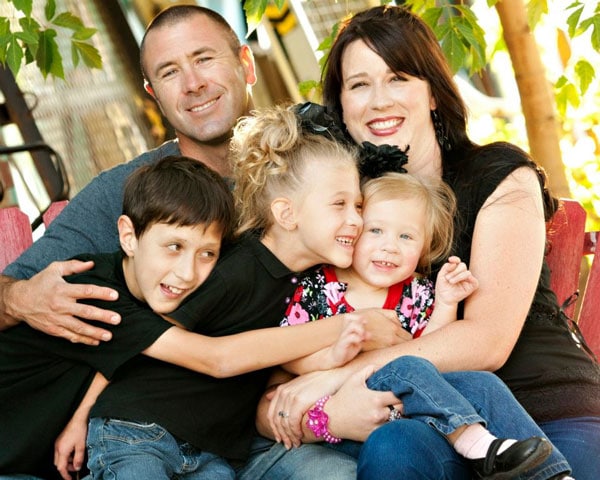Fragile X syndrome: Learning what families need, one person at a time.

Fragile X syndrome (FXS) is a rare genetic disorder that has a major effect on a person’s life. It is the most common cause of inherited intellectual disability, yet there are still many unanswered questions about its effect on the day-to-day lives of people living with FXS and their families. Learn what CDC and partners are doing to learn more about FXS, one case at a time.
Fragile X syndrome: Unanswered questions
The signs and symptoms of FXS and its effect on an affected person’s life can vary greatly from person to person. FXS affects both males and females; however, females often have milder symptoms than males. Children and adults with full mutation fragile X may have problems with memory, abstract thinking, problem solving, and planning. Social and behavior problems, difficulty with learning, developmental delays, and autism spectrum disorder are common, as are anxiety and depression. Males with FXS are usually diagnosed with some form of intellectual or developmental disability. People with FXS may also experience higher risk for some health conditions, including ear infections, difficulty sleeping, seizures, and gastrointestinal problems such as diarrhea and gastric reflux.
Having a child with FXS can mean many challenges for families. Some parents spend years taking their child to different doctors before getting a diagnosis of FXS. Others struggle with the behavioral and communication challenges that come with FXS. Children with FXS often take longer reaching developmental milestones, as well as struggle with the skills they need to become independent and self-sufficient, so they require a lot of extra care and support. These are just some of examples of the broad impact of FXS.
During the past several decades, scientists have made advancements in understanding the genetics of FXS; however, we are just beginning to understand how this complex condition affects people and their families. To help these families, we need to learn more about other conditions that commonly occur with FXS, the effect on the day-to-day lives of people living with FXS and their families, the short-term and long-term results, and the type of intervention and support that is most effective for each individual and their family.
FORWARD: A new way to collect systematic information on fragile X syndrome
Because FXS is a rare disorder—meaning that there are fewer than 200,000 cases per year in the United States—researchers who want to learn more may have difficulty finding enough affected individuals to get answers to scientific questions. CDC supported the National Fragile X Foundation to develop the Fragile X Online Registry With Accessible Research Database (FORWARD) to better answer these questions. FORWARD consists of a registry and a database. People with FXS and their family members are invited to participate in the Registry which contains brief information about demographics. The database is a longitudinal dataset that stores health and quality-of-life information that is collected annually through questionnaires. So far, the database contains more than 3,100 records of people with FXS and their family members who have contributed to FORWARD.
FORWARD is now a large source of clinical and demographic information on people with FXS in the United States. This information can be used to better understand the many unanswered questions about FXS. FORWARD data can be used to develop and deliver interventions that improve the health and quality of life of people with FXS and their relatives and caregivers.
CDC’s work on fragile X syndrome
In addition to funding the development of the FORWARD Registry and Database, CDC is working to learn more about the natural history of FXS so that better interventions can be developed.
CDC activities include
- Collaboration with the American Academy of Pediatrics to develop and distribute educational materials to healthcare professionals and families. These materials are designed to raise awareness of FXS and encourage early diagnosis so that people with FXS can receive appropriate care and services. Learn more.
- Working to learn more about how children with FXS develop compared to children with other conditions, including autism spectrum disorder and developmental disability, and to learn more about children with FXS who also have other diagnosed conditions.
More Information
- FORWARD (Fragile X Online Registry With Accessible Research Database)
- National Fragile X Foundation
- FRAXA Research Foundation






















.png)












No hay comentarios:
Publicar un comentario